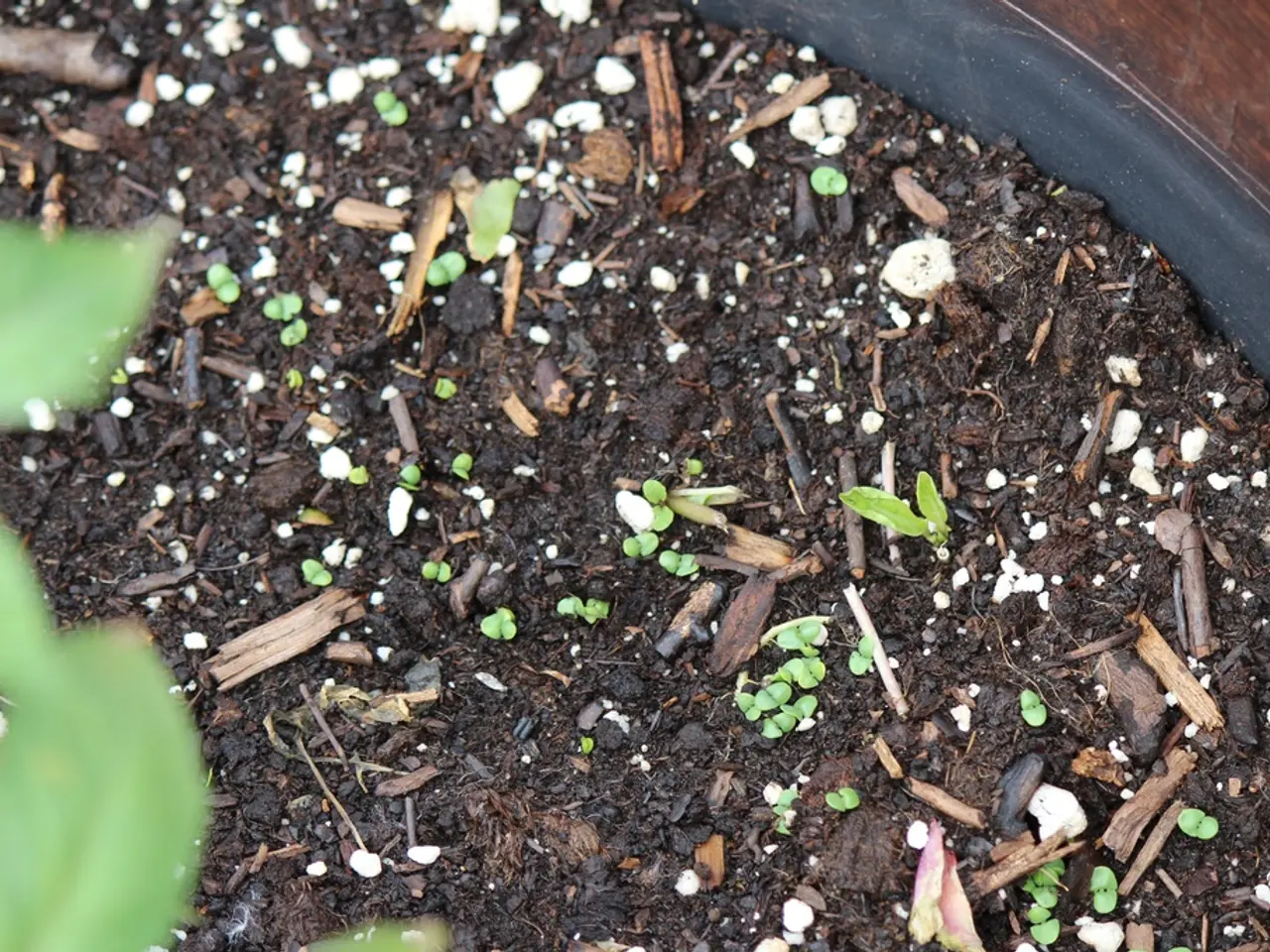Top-Notch Methods for Composting on Smaller Agricultural Spaces
Composting is more than just a backyard hobby; it's a powerful tool for small-scale farmers seeking to improve soil health, reduce waste, and promote sustainable agriculture. Here are four effective composting techniques that can make a significant difference for your small farm.
Hot Composting
Hot composting is a fast-paced method that maintains a compost pile at around 130°F - 140°F. To achieve this, balance greens (nitrogen-rich materials) and browns (carbon-rich materials), chop materials for aeration, and regularly turn the pile. This method quickly decomposes organic matter, kills pathogens and weed seeds, and produces nutrient-rich humus that improves soil structure and microbial activity [1][2][4].
Add-as-You-Go Composting
Add-as-You-Go composting is a lower-maintenance method where organic waste is continuously added to a bin, covered with browns, and turned occasionally. It produces compost more slowly than hot composting, preserving beneficial microbes that can suppress soil-borne diseases. This technique is simpler and requires less frequent management [2].
Trench Composting
Trench composting uses garden paths to bury organic waste directly in soil trenches. As materials decompose underground, they improve soil fertility in situ and reduce surface compost pile management. This method minimizes labor and is suitable for small-scale farms with limited space [2].
Worm Composting (Vermicomposting)
Worm composting uses earthworms to break down kitchen and garden waste in a bin system, producing nutrient-dense worm castings. It is particularly effective in confined spaces like urban farms or small plots, enhances nutrient cycling, and supports strong plant growth [3].
Benefits of these composting methods for sustainable small-scale farming:
- Improved soil health and fertility: Compost replenishes essential nutrients, boosts microbial populations, enhances soil structure, and increases moisture retention [4].
- Reduced chemical input dependency: Composting supplies natural fertilizers, reducing the need for synthetic chemicals, thus minimizing environmental pollution and protecting water quality [4].
- Waste reduction: Diverts organic waste from landfills, lowering greenhouse gas emissions and recycling nutrients back into the farm ecosystem [4].
- Pest and disease management: Hot composting temperatures can kill pathogens; add-as-you-go compost preserves beneficial microbes that suppress disease [2][4].
- Labor and cost efficiency: Methods like trench and worm composting require less infrastructure or cost, making them accessible for small-scale farmers [2][3].
In practice, small-scale farmers often select or combine techniques based on space, time availability, climate, and desired outcomes. Proper balance of carbon and nitrogen materials, moisture management (comparable to a wrung-out sponge), aeration, and protection from pests optimize composting efficacy and benefits [1][2][4].
Other helpful resources for learning about composting include books, online forums, local workshops, and YouTube videos. Don't forget that a compost bin holds compost materials together, a shovel is used to move compost from one place to another, and a pitchfork is used to turn compost for aeration. A thermometer is used to check the internal temperature of compost, and a watering can is used to add moisture to dry compost.
Coffee grounds are rich in nutrients and attract worms in compost, while dry leaves add carbon to compost and help with airflow. Vegetable scraps break down quickly in compost and add nitrogen. Vermicomposting involves creating a worm bin with holes for air, keeping it dark and moist, and feeding the worms kitchen scraps like fruit peels and coffee grounds. After a few months, vermicomposting produces rich worm castings that are valuable for the garden.
Composting is a natural recycling method that breaks down organic materials into nutrient-rich soil, reducing the amount of waste going to landfills and helping farms thrive. With the right techniques, small-scale farmers can create healthy soil, reduce chemical inputs, manage pests and diseases, and recycle waste effectively.
- By applying hot composting techniques, small-scale farmers can produce nutrient-rich humus that improves soil structure and microbial activity, contributing to the overall health and fertility of their agricultural land.
- Environmental-science knowledge is crucial in small-scale farming, as techniques like worm composing can reduce chemical input dependency, protect water quality, and minimize environmental pollution.
- A lifestyle focused on home-and-garden activities, such as gardening and composting, can lead to a more sustainable living approach, by recycling waste, improving soil health, and promoting eco-friendly practices at home.




